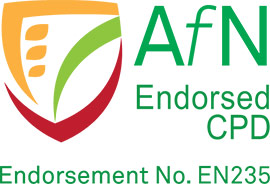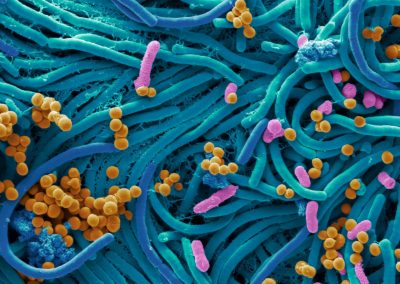
Free
60mins
Type 2 Diabetes:
Improving blood glucose & liver fat without weight loss?
Dr Nicola Guess
Tuesday 7 February 2023 20:00–21:00 GMT
CONTENT AND LEARNING OBJECTIVES:
Type 2 diabetes (T2D) may no longer be considered a progressive, lifelong condition, and remission is possible for some. Research has suggested that weight-loss is the main driver of T2D remission, but this may not be possible or appropriate for some.
The NHS currently offers a Low Calorie Diet Programme as a remission program for people recently diagnosed with T2D. This programme is based on the DiRECT trial which achieved 10kg of weight loss on average, and was associated with a 50% chance of achieving remission.
However, this degree of weight loss, particularly for older individuals, and those with a BMI of under 27kg/m2 may not be appropriate. Therefore, dietary modification which can lower glucose independent of weight loss remains a critical gap in the clinical management of T2D.
This Journal Club session discusses a study exploring improvements in blood glucose control and liver fat in weight stable participants with T2D when following a high-protein, reduced carbohydrate diet.
We’ll discuss the differences between short and long-term dietary trials, and what they can tell us. We’ll also talk about the importance of diet, independent of weight loss, in the management of T2D and associated conditions such as non-alcoholic fatty liver disease (NAFLD).
Watch this webinar to
Gain clear understanding of:
- The effect of dietary protein on glucose control in type 2 diabetes
- Why diet matters above and beyond its effects on weight loss
- What short-term dietary trials can tell us that long-term trials have not been able to
Be aware of:
- The differences in internal validity between short and long-term dietary trials
- The potential for dose response, or threshold effects of dietary factors on blood glucose control
- The wider effects of dietary protein intake on other cardiometabolic risk factors including blood pressure and liver fat
Be able to:
- Describe the effect of dietary protein on blood glucose management in type 2 diabetes
- Help patients with type 2 diabetes get better control of their blood glucose
- Help patients with non-alcoholic fatty liver disease improve their condition without weight loss or medications
Help us to continue providing expert nutrition learning
If MyNutriWeb has helped you deepen your knowledge of dietary and nutritional subjects, join us to help support and educate people to eat well for themselves and the planet. Read more...

Expert speaker
Dr Nicola Guess
Research Programme Manager, University of Oxford
Dr Guess is a clinical and academic dietician, with research and clinical interests focusing on type 2 diabetes and cardiometabolic disease. She has been the principle or coinvestigator of more than 10 trials in diet and type 2 diabetes. She currently leads a large type 2 diabetes remission program at the University of Oxford.
Paper reference
Skytte, M.J., Samkani, A., Petersen, A.D. et al. A carbohydrate-reduced high-protein diet improves HbA1c and liver fat content in weight stable participants with type 2 diabetes: a randomised controlled trial. Diabetologia 62, 2066–2078 (2019).

About Journal Club Chair, Dr Caroline Childs
Each Journal Club session is chaired by Dr Caroline Childs, Nutrition and Metabolism subject lead in Medicine at the University of Southampton. She received student-nominated awards for ‘most engaging lecturer’ and ‘best pastoral support’ and a colleague-nominated award for teaching excellence. Dr Childs is a Nutrition Society Ambassador and a South East Regional Representative for the Association for Nutrition.
As she says, “Developing skills in critical appraisal is an essential part of being a competent nutrition professional – whether you’re a dietitian, nutritionist or health professional specialising in nutrition.”
APPRAISING RESEARCH PUBLICATIONS
Nutrition research reported in the media often highlights mixed or contradictory results between studies. So, as a nutrition professional, how can you ensure you use the strongest available evidence to inform your practice?
CPD CERTIFICATE & LEARNING MATERIALS
This webinar has been approved for CPD by the AfN

Once you have viewed a full recorded session the mynutriweb team will review and arrange to send you your certificate via email from hello@mynutriweb.com within two weeks of viewing the session.
Popular Now

Dr James Kinross: Faecal microbiota transplants: how it works and why it doesn’t

The Microbiome of IBD and CD

Probiotics in the Management of Gut Disorders: What is the evidence?
This website is intended only for students or professionals working in food, nutrition and health. If this is you, please click to continue.


